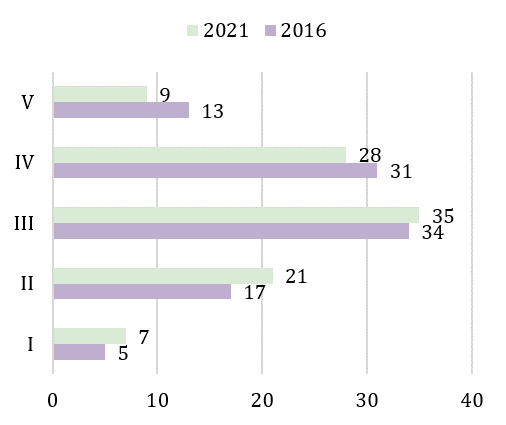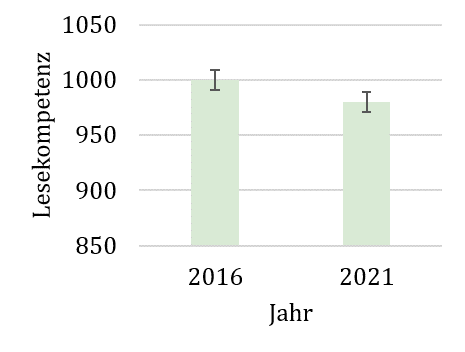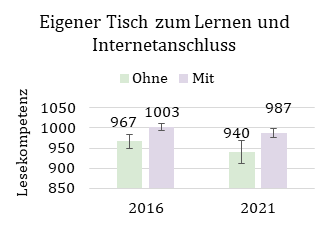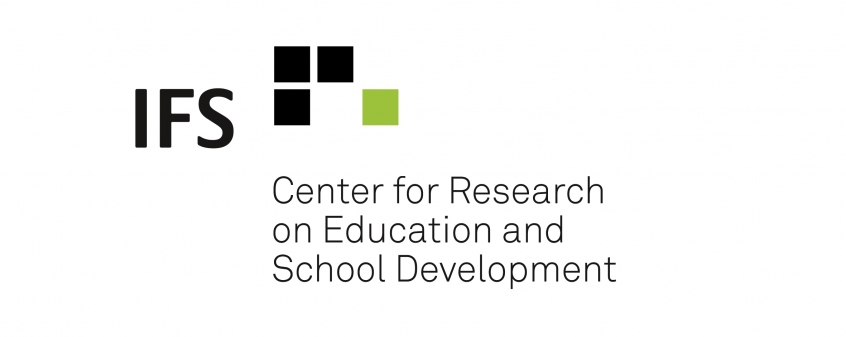The COVID-19 pandemic has affected school educational processes worldwide. A research team at the Center for Research on Education and School Development (IFS) at TU Dortmund University, led by Prof Dr Nele McElvany, has now provided scientifically representative results on the state of reading literacy before and during the COVID-19 pandemic among fourth graders in Germany. They asserted that the average reading competence of students in fourth grade differs from the reading competence of their peers before the pandemic.
The team used representative data from a German school panel study with more than 4,000 students in 2016 and 2021 at 111 selected elementary schools. It examined how reading literacy of students in fourth grade in Germany in 2021 differs from the reading literacy of their peers before the pandemic in 2016.
Students lack about half a year of learning after COVID-19-related restrictions on schooling
The German data show that children's reading scores in 2021 averaged 980 points, significantly lower than the 2016 average of 1.000 points. At the time of the study's surveys in 2021, students had more than a year of pandemic-related restrictions behind them. “If you express it in learning years, children are missing about half a learning year on average. When the change in the composition of the student body is taken into account, the gap narrows somewhat, but the significant decline in average reading literacy remains,” explains Dr Ulrich Ludewig, co-leader of the study.

Fewer good, more struggling students
The results also show that the proportion of elementary school students who can read well to very well fell by around seven percent compared to 2016, to 37 percent. In contrast, the proportion of those who have problems with reading and text comprehension increased by six percent to a total of 28 percent. “Since reading is a core skill, this result also has implications for all other subjects,” emphasizes Nele McElvany.
Drop in the achievement level affects all assessed groups of students
The decline in the average achievement level affects all investigated groups of students. For example, in Germany, girls have always been better readers than boys. At the same time, children whose families had more than 100 books at home, scored a better result in reading literacy than those with less than 100 books. These differences stay constant, but overall, on a lower achievement level. However, children with poor home conditions for learning – no desk of their own and no Internet access – lose more on average (27 points) than children with good conditions (16 points). Finally, comparing the groups of elementary school students with and without an immigrant background, the reading skills of children with an immigrant background tended to decline more during the pandemic on average. The result cannot be statistically validated against chance, but the figures descriptively show a widening of the difference in mean reading achievement: Whereas children born abroad scored on average 46 points less compared to children born in Germany in 2016, this difference amounts to an average of 63 points in 2021, or about 1.5 learning years.

Are German results transferable to other countries?
The current generation of schoolchildren in Germany generally shows much lower reading skills than five years ago - this is alarming. As the COVID-19 pandemic had a disruptive impact on global education systems and has increased inequalities in many countries, it is to be expected that similar patterns will emerge in other countries. To close this gap again, comprehensive and effective support and remedial services are essential, writes the research team in its report. “In addition to elementary schools, secondary schools must also be systematically considered for reading promotion”, says Nele McElvany. In view of possible future crises, aspects such as self-regulated learning in more distance-oriented teaching-learning contexts and educational work with digital media must also be considered as key points in educational policy and pedagogical decisions.

About the study: The school panel analyses are based on the responses of 2,208 fourth graders in 2016 and 2,082 fourth graders in 2021 from 111 elementary schools in Germany. All schools participated in PIRLS 2016 and were tested again five years later for the school panel study using a standardized reading literacy test from PIRLS. This provided the first opportunity to analyze the average reading literacy of children at the end of elementary school at the same schools before the pandemic and after approximately one year of schooling under pandemic conditions in comparison.
For more information, read the full announcement.

